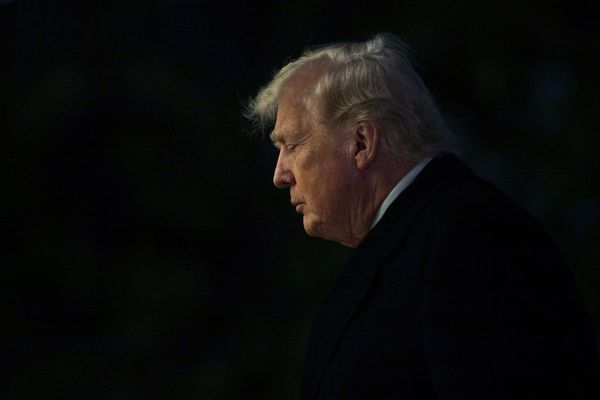
It’s a strange time to be a pacifist in Britain. Everywhere there are calls for an end to the war in Ukraine: from politicians to Premier League footballers to hand-painted pleas for peace in people’s front windows. The illegitimacy and brutality of the Russian invasion make it very easy to condemn.
Yet at the same time, some of Britain’s most longstanding peace activists are being attacked and threatened. The Labour leader, Keir Starmer, has accused the Stop the War coalition, which has opposed conflicts for more than 20 years, of being “at best … naive” and “at worst … showing solidarity with the aggressor”.
Eleven Labour MPs who signed a Stop the War statement about Ukraine, including veterans such as John McDonnell and recently elected leftwingers such as Zarah Sultana, were told that they could be expelled from their parliamentary party if they did not remove their names. All the MPs complied. From what was until recently quite a loosely managed political party, it was a strikingly aggressive disciplinary action.
The statement in dispute does not seem outrageous. Published before the invasion, it “opposes any war over Ukraine”, calls for “a diplomatic settlement”, and criticises the British government for “aggressive posturing” and Nato for its “eastward expansion”. There is less criticism of Russia than its own, much more violent, expansionism merits; but little sign of the alleged “solidarity with the aggressor”. “We do not endorse the nature or conduct of either the Russian or Ukrainian regimes,” the statement says. “The crisis should be settled on a basis which recognises the right of the Ukrainian people to self-determination and addresses Russia’s security concerns.”
Such even-handedness may seem horribly inappropriate now. But the interests of both sides may have to be satisfied if this crisis is ever going to end.
That Stop the War’s stance has provoked what its convenor, Lindsey German, described at a rally last weekend as “a serious backlash” – including a death threat against Sultana – suggests that the space in British politics for pacifism, or even for scepticism about military institutions such as Nato, is dramatically shrinking. Only two years ago, Labour was led by a peace campaigner and Nato critic, Jeremy Corbyn. Now his successor hails helping to found Nato as one of Labour’s “great achievements”, on a par with creating the NHS. The vaguely defined “security” that Starmer has been offering voters, without much success, is suddenly coming into focus as a militaristic project.
You may welcome this as Labour getting real again. The party has a tradition of supporting military action against extremists and aggressors, from the second world war to the Falklands, Afghanistan and Iraq. For a party often characterised regardless as unpatriotic, unrealistic and weak, supporting wars and increasing defence spending can be an appealing tactic. Recent research by the British Foreign Policy Group (BFPG) showed British military interventions most strongly supported by older, white, leave-voting men outside London: exactly the voters that Starmer has prioritised winning back.
The more moral left-of-centre case for militarism was summed up in 1942 by George Orwell. “Pacifism is objectively pro-fascist,” he wrote, as it effectively helped the Nazis. The idea that you could live “aloof” from the war was an “illusion”: the war affected everyone’s lives. Sometimes, a lack of perspective undermines pacifism in general. Anti-war activists don’t always acknowledge how common violence is in peacetime – in coercive modern capitalism, for example.
But more often, pacifists are more worldly than their critics claim. At a packed Stop the War rally in London on Wednesday, speakers talked about poverty, inequality and austerity as well as the military situation. Apologists for Russia were conspicuous by their absence. “There is nothing progressive about Putin’s Russia,” said the longstanding anti-war campaigner Tariq Ali, to loud applause. Corbyn accurately described it as a regime of “robber barons”.
The idea that pacifists are dupes or tools of the enemy surfaces in Britain every time there is a war. Despite that, a lot of voters are consistently anti-war. In 2020, the BFPG found almost a fifth opposed British interventions under any circumstances. They are nearly always under-represented in parliament. Except for rare large rebellions such as those over Iraq and Syria, “unity” is prized during wars. Anyone who believes in democracy ought to be uneasy when they hear that word.
Sometimes pacifists are naive, for example about Hitler in the 1930s. Yet the same criticism could be made of the supposed realists who backed the Afghan and Iraq wars. Often, not fighting is the least bad option, which is why most countries rarely do. British parochialism – and the shaping of opinion by our huge defence industry – stops us seeing how unusually warlike we are.
For now, our politicians are resisting the temptation to directly confront the Russians. But it’s a very bellicose kind of restraint – hence Starmer’s fury at Stop the War, which opposes arming Ukraine. And the desire here for peace feels like it could easily flip over into its opposite. At last Saturday’s demonstration outside Downing Street against the invasion, chants of “Stop the war” were followed by other ones from the most Ukrainian parts of the crowd: “Shelter our sky” – impose a no-fly zone – and “Arm Ukraine”.
With a new cold war or worse starting, the peace movement is going to become both more demonised and more vital. People who loudly refuse to accept that the world is divided into two camps, whatever horrors are being committed by one of them, can seem foolish, disloyal, even lacking in basic morality. But without them, our politics will be left to warmongers and their suppliers.
Andy Beckett is a Guardian columnist







